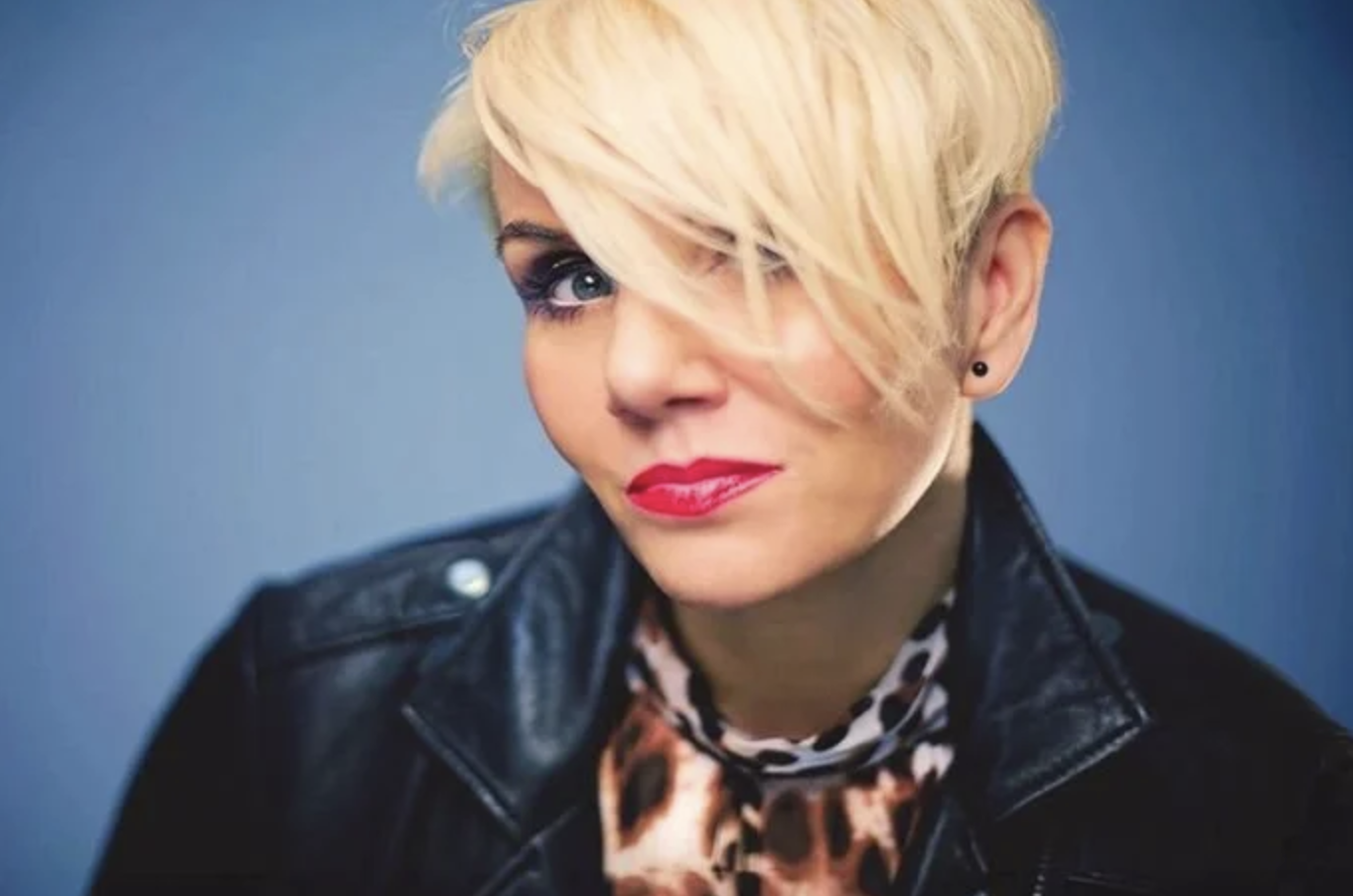TBC introduces… Rachael Calladine
We are proud to welcome internationally acclaimed vocalist Rachael Calladine to The Bear Club for an unforgettable evening of world-class jazz, soul, and groove.
Having travelled the globe performing to a multitude of audiences, Rachael has firmly established herself as one of the UK’s most versatile and captivating vocal talents. Her impressive career includes performances at legendary venues such as Ronnie Scott’s, Pizza Express Dean Street, and The Jazz Café. Her debut album of original material, Life, Love & Gossip, earned widespread critical acclaim and cemented her reputation among industry tastemakers and jazz aficionados alike.
After several years dazzling audiences in Dubai, Rachael has returned to the UK, embarking on an exciting new chapter that sees her reconnecting with her jazz roots. For this special performance, she’ll be joined by her outstanding band, featuring Pat McCarthy on guitar, Andy Tytherleigh on bass, and Si Potts on drums. Together with her ensemble, Rachael will deliver a jazz-driven set drawing from her rich musical catalogue.
We caught up with Rachael ahead of the show to talk about her incredible musical journey and what fans can expect from her long-awaited return to the UK jazz scene.
For those who may not be familiar with your name, can you tell us a little bit about yourself, where you’re from, and how you got started in the business?
I’m originally from Derby, but I moved down to London to pursue a music career because it was all happening in London and there were a lot more opportunities. I’ve been singing since I was in my teens.
It was exciting to move to London; the music scene was vibrant. I got to know a few musicians, and they would ask me to sit in with them. Back then, you could hang out with the bands, well-known names, and you’d find yourself at Ronnie’s or Pizza Express in Dean Street. I did alright, as I could lend my voice to any style of music, really.
Looking back to your early days with the Derby Youth Jazz Orchestra, surrounded by musicians like Dave O’Higgins and Phil Robson, did you already have a clear sense of the kind of singer you wanted to become?
No, not really, and even now I don’t consider myself a jazz singer or one type of singer. Don’t get me wrong, I love singing jazz, but I love soul, house, Latin, reggae, anything with a great beat. I love a bassline - I’ll sing anything if it sounds good and has a great bassline.
It’s just that to sing jazz, you need a specific set of skills and tone, which I seem to find quite natural, so I find myself doing more jazz. I can do the runs, which always helps when you are singing jazz.
Many musicians and singers talk about the thrill of finally performing at places like Ronnie Scott’s. You’ve described the feeling of "having arrived" when you first stood on that white taped cross at Ronnie’s - what did that moment mean to you personally and professionally?
Back in the day, Ronnie’s was such a special place to perform. All the big, big names had played there or were booked to play there; it was like a rite of passage. You got to know everyone, and they made you feel like family. Some of the big American artists would be over for the whole week, so you got to watch their shows in between doing your own sets, and learn how to do certain things - you could just go up and ask them for advice. I have seen and met so many greats there - I remember watching Joe Sample, and there were only about ten people in the room.
I always remember there were two things about Ronnie’s stage. It had a hole in the floor, and if you weren’t careful, you’d get your heel stuck in it. It had a white taped cross where you stood if you were the singer, and I remember thinking how many famous people have stood on that cross. Peter King was the booker back then - he’d book you and write your name in the book, always in pencil, so he could rub it out if he wanted to! There were no contracts or emails to confirm your booking; you’d be on your way down there and be massively relieved to see your name on the board. It’s not like that now. I loved playing Ronnie’s, I even had a picture up on the wall back then.
After performing in the clubs and recording in the UK, you made the bold decision to move to Dubai to further your music career. What was the reason behind that decision, and how did you find the experience?
Working in Dubai was a great experience. We were living in Hackney at the time, and things weren’t good, you know what I mean, just not good. So, we had this opportunity to go out to Dubai. Due to licensing laws, all the entertainment was in the big hotels, and all the musicians were from the Philippines. Amazing musicians - if you want to see someone sing Whitney Houston, go to Dubai. I don’t mean that in a derogatory way; the Filipinos are just excellent at it.
It’s a little strange, though, because in Dubai, the musicians get paid much less than the singers. They tried to pay my band much less than they would pay me or musicians from abroad. I wasn’t having that. I kind of broke the mould, because I insisted my band gets paid the same. I was performing six days a week, four sets a time, because they have this thing about four sets! It was great fun, but after spending several years out there, it was time to come home.
It feels like you have lived the experiences you write and sing about in your latest album, The Game?
Yes, definitely - you can be more creative and expressive if you understand and feel what you are writing about, you feel it more. I have lived in several countries, so I have picked up things from all of those experiences, good or bad.
I’ve had the opportunity to work with amazing musicians over the years and learnt a lot from them. Working with Pat, Andy, and Si is always so much fun. Me and Pat always bounce off each other - we have a residency together, which is a lot of fun. We never know what we are going to sing each time.
One of the standout tracks on the album is the Albert Hammond track "All I Need Is the Air That I Breathe", which was really brought to light by The Hollies in 1974. How did you approach reimagining such a well-known song and making it so distinctly your own?
I’ve always loved that song. Obviously, everyone knows the song, but when I heard it, I could hear that it would lend itself to a jazz arrangement. When I do a lot of songs live, I like the audience to know where the original comes from, or at least where the samples come from. So many songs have hooks from other songs, and sometimes the audience doesn’t know, so I like to inform them where the original is from.
Who are the vocalists or mentors who have influenced you most, and what lessons from them still guide you today?
I actually used to do a show called Vocal Blonde at Crazy Coqs in London. Basically, it was songs by bleached blondes like Peggy Lee, Madonna, Dusty Springfield, and Blondie, but I would do them in a jazz style. People really liked it because they recognised the songs but had never heard them done in a jazz format. I did that with Andy on bass, Si on drums, and a pianist called Adrian York. That was great fun and it worked really well.
What can we expect from your show at The Bear?
A great show for certain! I never have a setlist. Pat, Andy, and Si know ninety nine percent of the songs I’ll sing - they know all the Great American Songbook, the popular jazz songs, and jazz standards. So, a bit like a DJ playing a set, I try to read the room a little. Halfway through one song, I’ll be thinking what the next one will be, what they would like to hear next. They love working like that, it’s a lot of fun. Most importantly, the audience goes away feeling like they’ve had a great time.
Rachael joins us with her quartet on Thursday 20 November 2025

